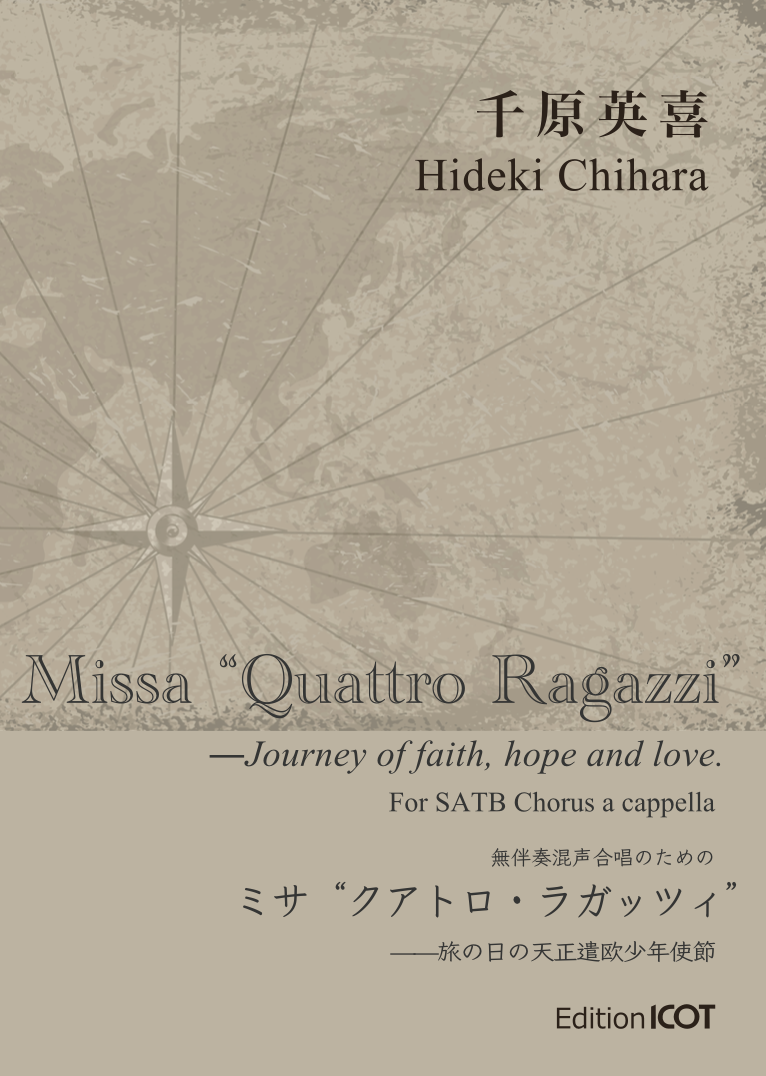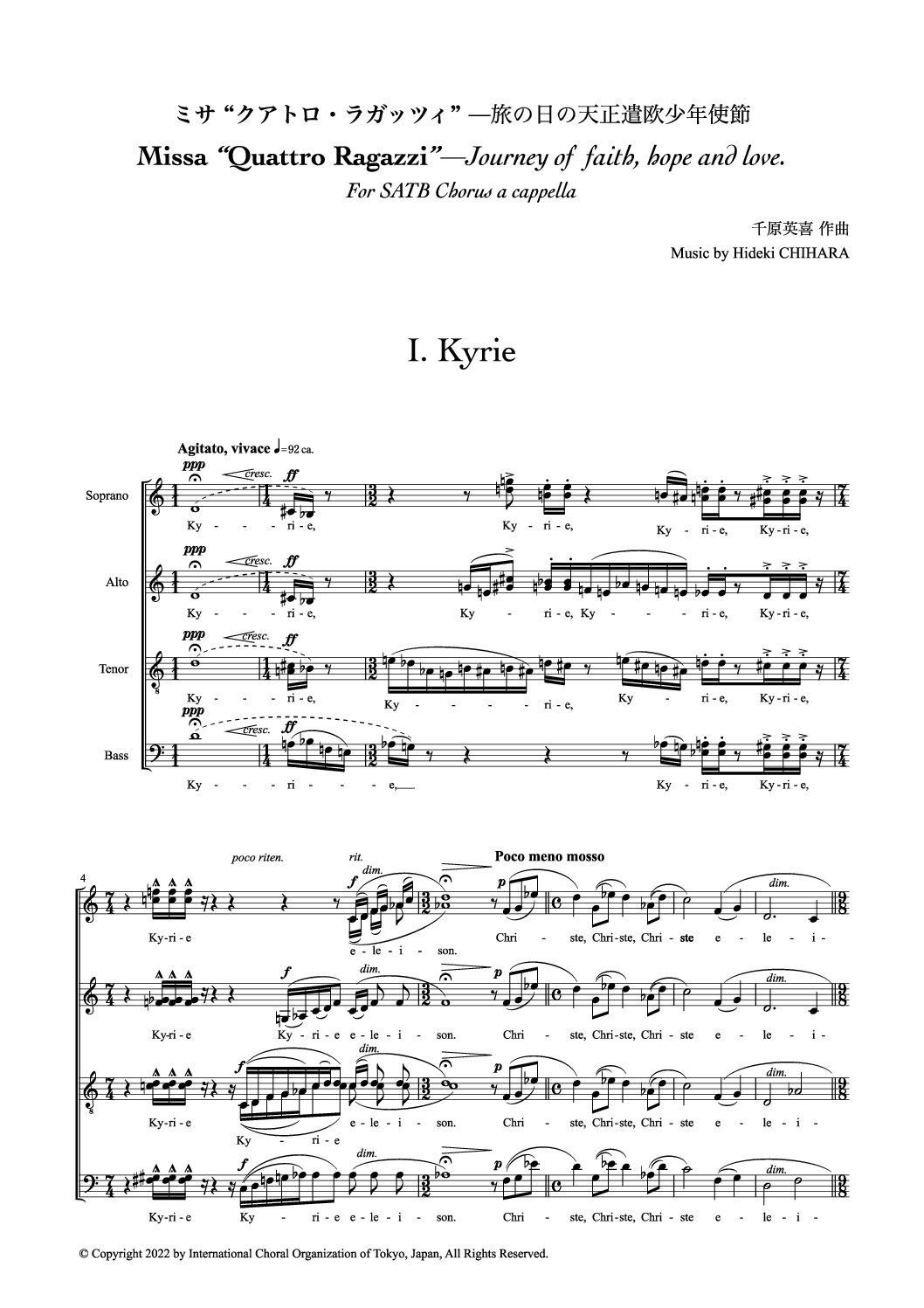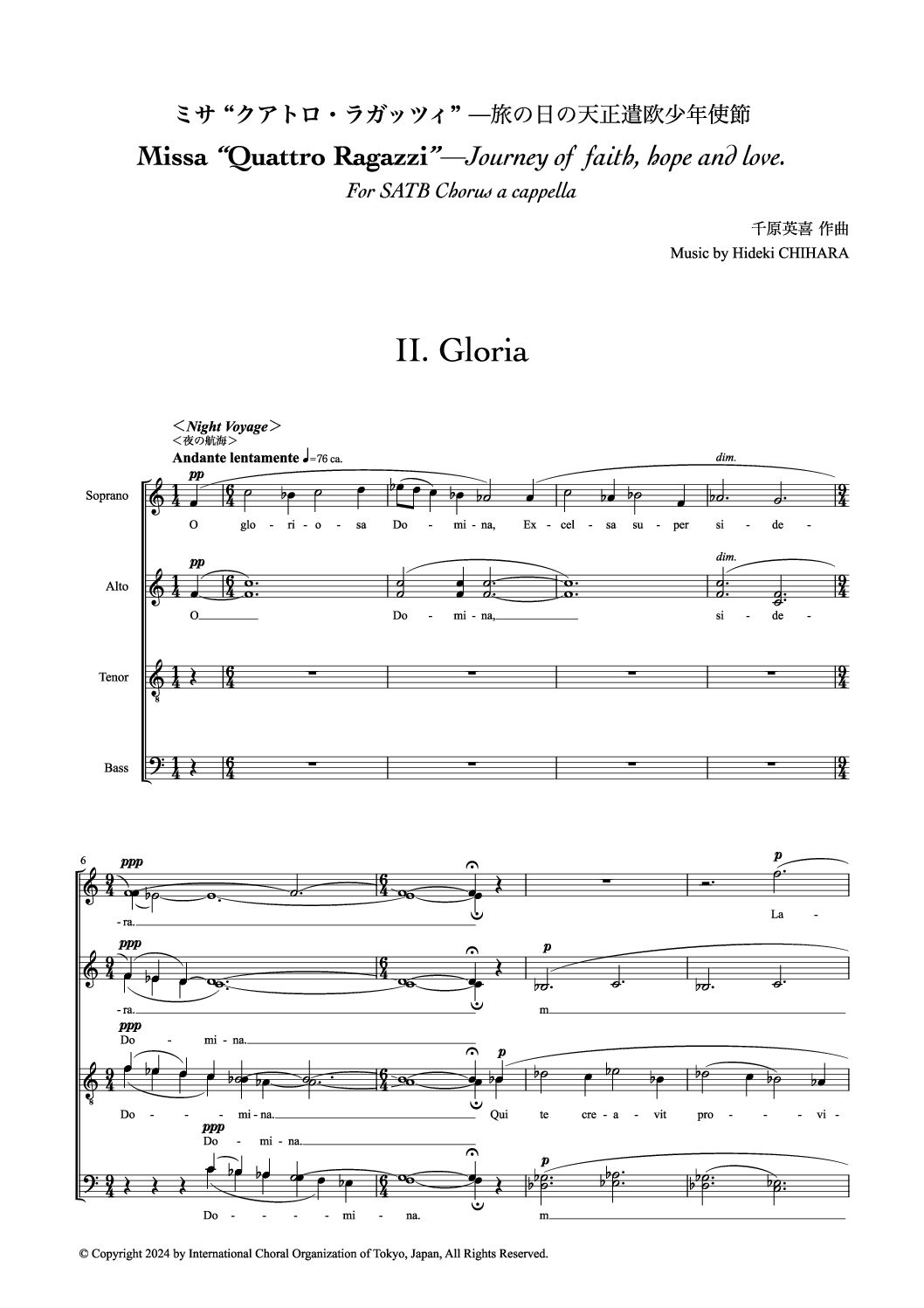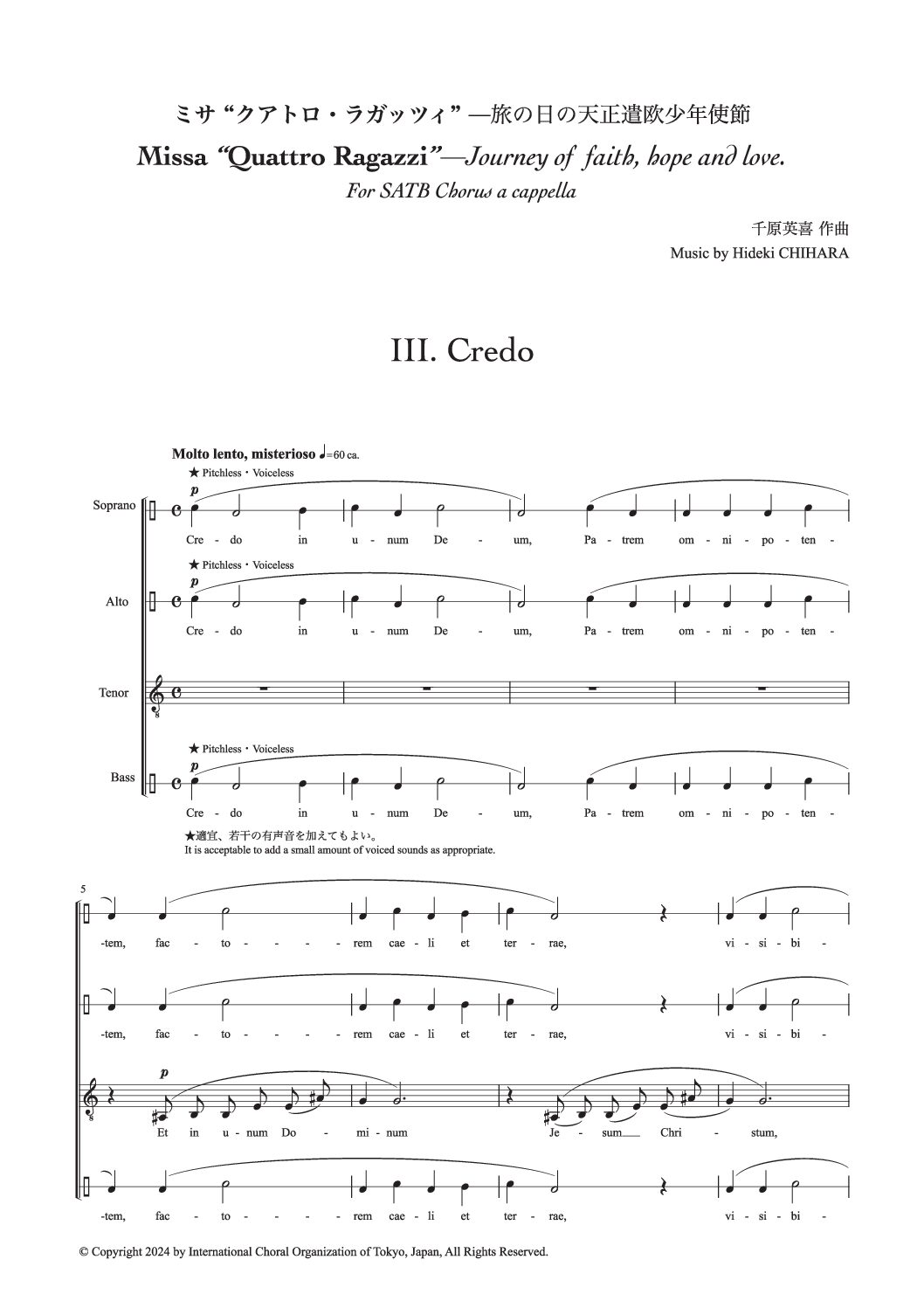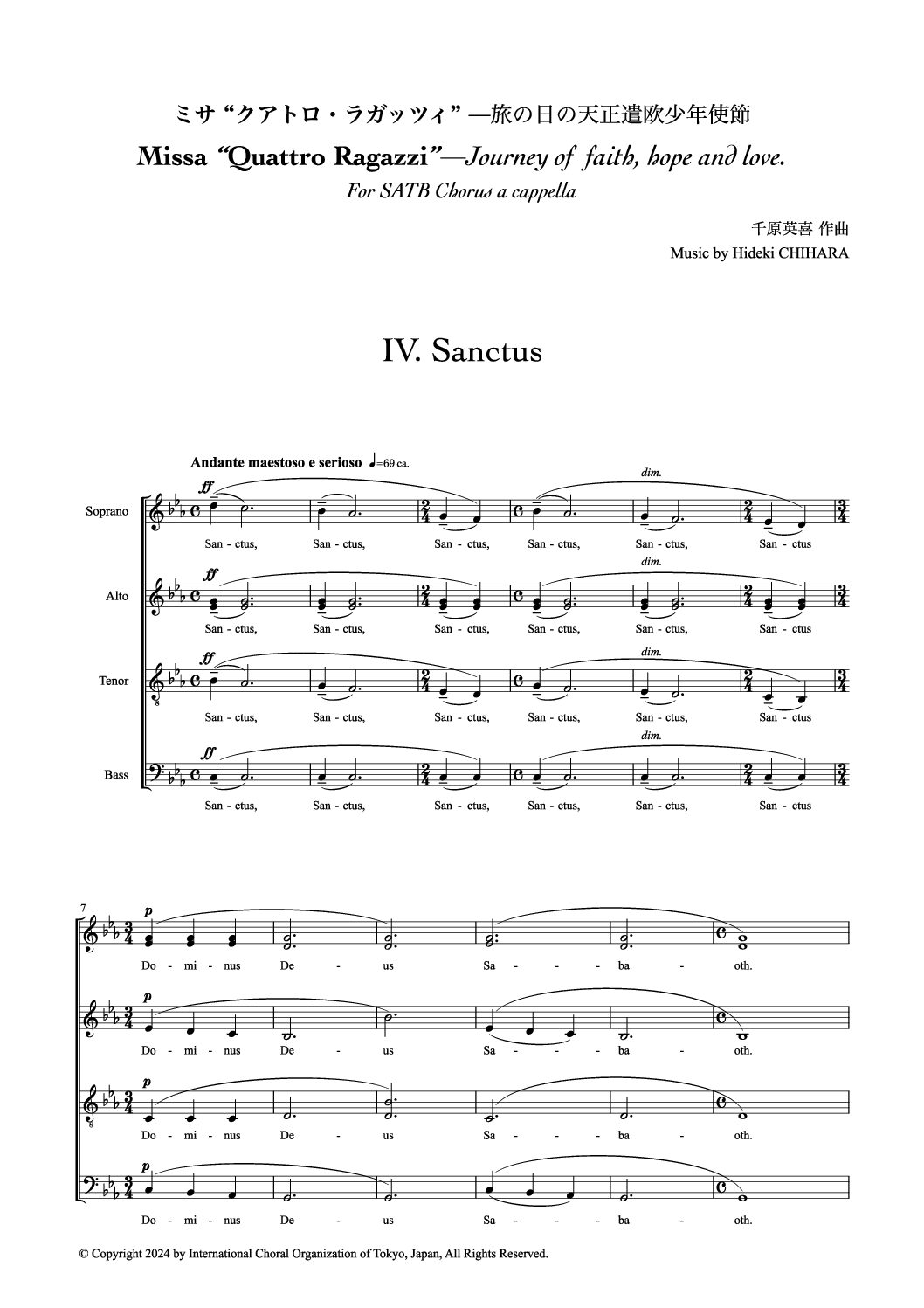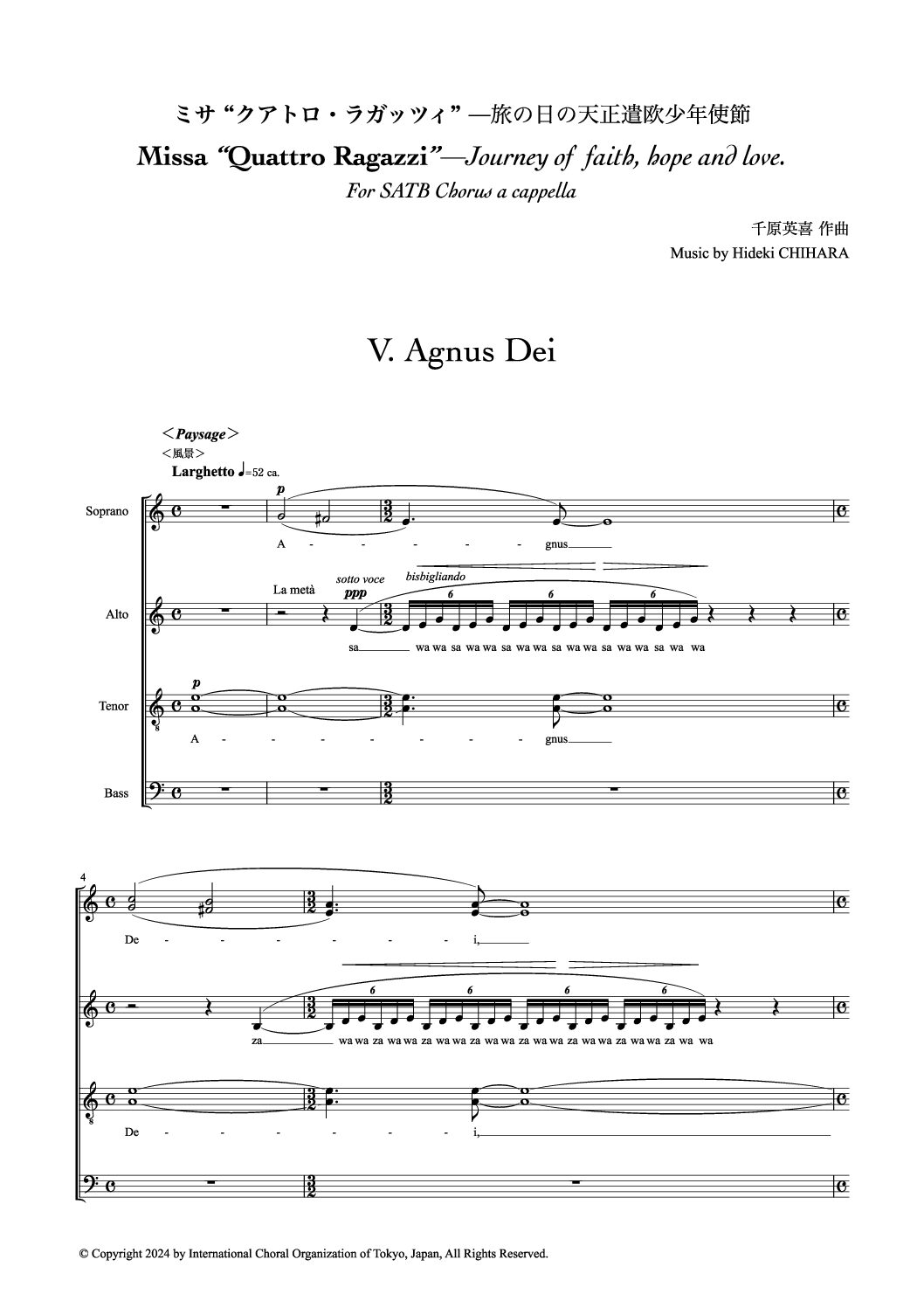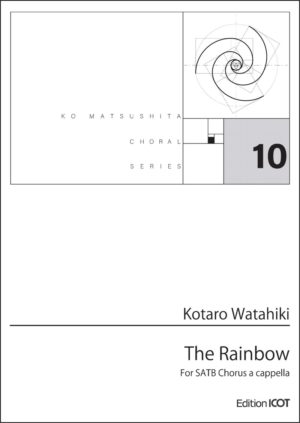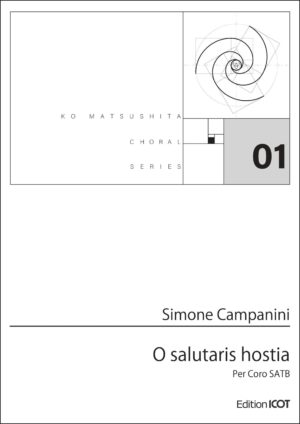“
Composer: Hideki Chihara
Words from composer
”
In 16th century Japan, during the Azuchi-Momoyama period, a time of growing faith and interest in Christianity, some boys traveled from Japan to Europe. The boys were welcomed by the royalty and nobility of Western Europe and received in audience by the Pope. These boys became known as the “Quattro Ragazzi” (Four Boys).
In 1582, under the auspices of the Jesuit missionary Valignano, the Christian feudal lords of Kyushu sent four boys to Rome as their representatives. This mission became known as the Tensho Embassy to Europe. The purpose of the mission was, first, to inform the West of the existence of Japan and to gain understanding and financial support for the missionary work in Japan. Secondly, to have the boys witness the Western world and expand the missionary work in Japan through their experiences.
The boys set sail from Nagasaki, sailed through Macau, Malacca, the Indian Ocean, Cochin, and St. Helena Island in the Atlantic Ocean, landed in Lisbon, and sailed through the Mediterranean Sea to Rome, Italy, on a perilous journey across the world. What would become of them?
When they returned to Japan eight years later, the situation in Japan had changed drastically. Toyotomi Hideyoshi issued an edict expelling the missionaries, and the Tokugawa Shogunate’s edict forbidding the practice of Christianity led to the expulsion of believers and a storm of persecution. How would their story unfold?
This is the piece I composed to depict the scenery of the journey that the Quattro Ragazzi – Mansho Ito, Martino Hara, Julian Nakaura, and Miguel Chijiwa – would have seen, the pageant of glory in the Christian world, and the tragic fate brought about by a dark turn of history.
I put emotion into each sentence of the text, superimposed on it the dream of Quattro Ragazzi far away in time, and proceeded to compose the music, envisioning a series of musical dramas in five movements.

